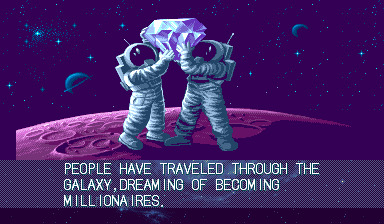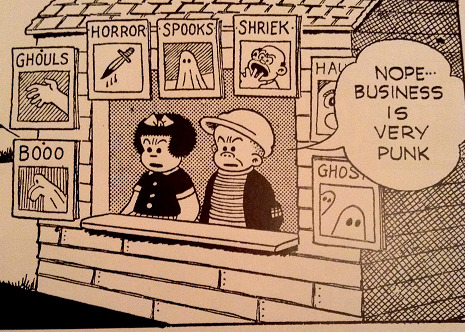#an excellent point friend but you see i work at my local library and thus i am either working or otherwise unable to attend
Explore tagged Tumblr posts
Text
I've never been in a real bookclub before, a black mark on my librarian record, but like what if I was feeling a little silly would any mutuals be down
#maybe its the raised on cable in me but there is something v glamorous about a bookclub to me#and i hear you saying bec why dont you attend a book club at your local library?#an excellent point friend but you see i work at my local library and thus i am either working or otherwise unable to attend
2 notes
·
View notes
Text
Episode 17: The Boneturner’s Tale
Ah, finally. It’s about time I got another episode listened to. Amazing how long that takes; so much to do. And still I have no bookcases. Oh well. This one’s the statement of a Sebastian Adekoya, and apparently it has something to do with books. I am pleased.
...Oh, I am very pleased.
It seems to me that Sebastian Adekoya understands books very well. I’ve said before (and will doubtless say again) that all books are books of magic. Just as this episode’s statement-giver says, opening a book allows you to enter the mind of someone who may well be long dead. In such cases, reading is a form of necromancy.
To read a book is to change your mind: to place thoughts there that are not your own, to see things you’ve never seen, walk through worlds you’ve never been to, that no longer exist or don’t exist yet, or that never will.
To write is to preserve a fraction of your own mind, freezing it in symbols which wait to be decoded by the incautious.
You don’t know what thoughts you’re inviting to live inside your mind when you settle down to decipher a lexical set. You can’t know what they’ll do to you, nor you to them (nor what they, changed, may do to you again). The promises in the titles, in the genres and the labels, can only tell you so much. What does this set of words contain? Have you even understood what is meant by the description—are you sure you know what it means when an old story is called a “romance,�� or when a newer one is labeled “wuxia”?
Some thoughts won’t be able to live in your mind. Some you’ll never be able to get rid of. Personalities and people, scenes and scenarios, images and ideas... foreign things birthed in the minds of others; decode the twisting lines on the page before you, and they’ll spring to life in your mind as powerful as the day they were written.
Words can be wonderful—and dangerous.
Books are beautiful—and bewitching.
You should never read unwarily, because when you read you’re bringing alien thoughts to life in your mind, and you may not want them to make a home there....
Sebastian Adekoya says he used to work at Chiswick Library. As he describes it, it’s a local library very like the one I grew up with: cheaply furnished, full of battered paperbacks, open-feeling, and frequented by friendly, quietly chatting patrons. Probably the occasional Children’s Corner with a librarian who reads aloud well and a much-loved copy of, say, Matilda or Owl at Home, depending on the audience.
Our statement-giver says it was 1996 when the thing happened.
He’d been working for the library about a year at that point, and knew that the library bought its books new, when it bought them (though he didn’t know where they bought them from).
A patron returned five books at the front desk. One of them, he’d never seen before. It was not, however, new. “The barcode and ISBN,” Sebastian says, “both registered as being that of Trainspotting by Irvine Welsh, but the book itself was an almost featureless black paperback, with a title on the front in faded white serif font: The Bone Turner’s Tale.”
Confused, he calls the librarian (Ruth Weaver) over to look at it.
She also didn’t remember ever seeing it before, but it had the appropriate markings for a book from Chiswick Library, and the stamps on the lending label indicated it’d been in their collection for several years.
Weaver shrugs and says not to worry about it: they’ll get it put on the system properly. Sebastian, however, is bothered. So he does a bit of quick research.
The man who brought the book in, one Michael Crew, apparently only checked out four books, not five. Our statement-giver thinks maybe he’s a self-published author trying to get his book into the local library, and suggests this possibility to the librarian, who laughs and says that’s probably it—though why anyone would bother trying to get a book onto the shelves of this particular local library was beyond her.
Sebastian Adekoya notes that the book looked worn, “like it had seen decades of being read, with a line creased down the spine and one half of the cover faded from the sun. Nor, from what I could see, did it list any author at all.”
At this point, our fascinating book story is interrupted by the arrival of another character.
According to our statement-giver, this Jared Hopworth is, “not to put too fine a point on it, thick as mud.” He was also Sebastian’s best friend when the two of them were kids: inseparable. Hm. I must admit, I never had (nor wanted) anyone like that in my life. I suppose there was that other preacher’s oldest kid, from the church in the next church region over (it’s not called a diocese when you’re Protestant, but the effect’s much the same...). We were mostly friends in name, though, and never spent much time together.
In any case, Sebastian went to college and Jared hit the back alleys. For some reason, it seems, Jared Hopworth saw this as Sebastian Adekoya betraying him by being too smart, not him betraying Sebastian via being an idiot too stupid for college.
I do have to wonder how intelligent our statement-giver actually is, however, given that he apparently decided to just put up with what he describes as “a campaign of petty terror” for the sake of a memory of childhood friendship. Oh, sure, “he was always very careful to stop before he did anything that might get the police involved—but let’s be honest with ourselves, shall we?
You should only brush off malicious behavior from others if you’re enjoying it, and want to encourage them to do more.
...And now we get an even larger interruption. Excellent.
I do believe this is the very first time another character has actually broken into the middle of a recording. I don’t like it. Who is this Miss Herne, and why is her complaint so important that my story has to be disrupted?
I don’t even remember ever hearing her name before. I don’t know her, I don’t care about her—weren’t we in the middle of something?
...Oh, no, wait... I do remember her.
Naomi Herne, the annoying woman who doesn’t know how to appreciate a misty moonlit graveyard meadow. The one with the unusual attachment to that large piece of headstone. What’s she complaining about? I don’t remember that she had anything to complain about besides her own unfortunate lack of, as the children say, “chill.”
Well, whatever the case, it seems Jonathan Sims considers Naomi Herne’s statement a waste of time. It wasn’t, it was beautiful—but never mind. The interrupting messenger, someone named Elias (which rings a faint bell), tells the head archivist that the Lucas family gives the Magnus Institute financial support, so he shouldn’t annoy anyone connected with them if he can help it. Does Naomi Herne count as “connected to the Lucas family”? Her Lucas husband’s dead. She doesn’t even have the name. No children that I’ve heard of. No reason she should be connected that I can see. And they didn’t seem terribly interested in a connection at the funeral, did they? I think Mr. Sims can antagonize her all he wants without damaging future Lucas donations, frankly.
Our interrupter is also looking for Martin (the supposedly-but-not-apparently incompetent archival assistant). Mr. Sims says Martin is off sick with stomach problems this week, and Elias leaves.
...Wait.
Elias Bouchard? Jonathan Sims’ boss? Why is he running messages down to the archives? This makes even less sense than Rosie the receptionist being in charge of upkeep on recording equipment. Just how much disbelief is supposed to be suspended here? I’m asking seriously, because the Magnus Institute seems like a very badly put together organization if you think about it too much. Or at all.
Well. Elias Bouchard leaves, Mr. Sims expresses “blessed relief” at the fact of Martin’s being sick and thus not at work, and we return to the statement.
...Our main character really dislikes this particular assistant, and for (it would seem) no good reason. Is there history there? Did Martin do something especially bad to Mr. Sims at some point in the past?
Or is it just some kind of negative bias, like thinking a man will be no good with children because he’s a man, or that a woman will suck at math, or that a Hispanic cleaner will steal your jewelry because they’re Hispanic (you dropped your necklace down the back of the dresser, Grandma—I am never going to forget that unjust accusation, nor how plain you made it that your suspicion was based entirely on race).
In any case: back to the library.
Sebastian Adekoya notes that it’s typically a bad thing when Jared Hopworth turns up at the library, because it means Jared’s “bored enough to seek me out for harassment.”
This is apparently exactly what Mr. Hopworth has in mind, because he waits for Weaver to go back to her office and close the door, then knocks the returns cart over, spilling books everywhere. Which is a horrible thing to do. I can’t stand seeing books mistreated this way, I’d rather watch someone bash innocent children around (which, I realize, isn’t saying much given I’m the one talking—but still).
Despite obviously having done it on purpose, he smiles and apologizes.
I’m familiar with this particular method of annoying people. Deliberately doing something terrible, then acting as though it was accidental? Yes, indeed.
People have trouble dealing with this. You did a bad thing. You clearly meant to do the bad thing. This should give them the right to demand retribution. But then, instead of continuing in the “person who does bad things deliberately” role, you switch to “friendly mistake-maker,” and it throws them.
Really they shouldn’t give you the benefit of the doubt.
There’s no doubt!
Sebastian Adekoya bends down to pick the books up, and as anyone with a capacity for noticing patterns of behavior could have predicted, Jared Hopworth hits him in the back of the head with a book.
Which is, again, a terrible thing to do to a book. Human skulls are, on average, much sturdier than the covers of books.
This book, however, may be capable of taking care of itself.
“Behind me, Jared stood holding the book I had put aside—The Bone Turner’s Tale—and had apparently picked it up to hit me with. But rather than offering me a fake apology, or further violence, instead his eyes were locked on the book. We stood there in silence for a few seconds, until he said something about needing something new to read, turned around, and walked off.”
According to our statement-giver, Jared Hopworth isn’t much of a reader, “and the look in his eyes when he left had something in it not entirely unlike fear.”
Yes, I think this work might be able to handle that book-abusing felon just fine.
On his way home after leaving the library that night, Mr. Adekoya passes Mr. Hopworth’s house. Apparently they’re both living in the same houses they occupied as children, which is rather unfortunate for Sebastian, don’t you think? It’s late September, which is a nicely spooky time of year, and something’s moving in the pool of orange light under a streetlamp.
It’s a rat. A large white rat that looks as though it was once a pet. Something’s wrong with the back half of it, and its head seems to be turned around farther than it should be as it drags itself along by its front paws.
Which is also deliciously spooky.
Sebastian Adekoya stares at it until it drags itself off into the darkness and disappears from sight.
He notes that the lights were off in Jared Hopworth’s house. As someone who sleeps days, works nights, and routinely doesn’t turn the lights on as I go about my nightly affairs, I don’t find this particularly indicative of a lack of activity—but that’s me. I suppose most people, when their lights are shut off, don’t make and eat food, read books, do jigsaw puzzles, etc. Ah, how limiting it must be to have such weak senses.
Jared Hopworth more or less vanishes from the scene for a while. Weeks go by without him turning up to torment Sebastian Adekoya, who begins to feel worried. Almost a month with no torment? Surely something must be wrong!
...Hmm. Do you suppose our statement-giver might be just mildly masochistic?
Whatever the case, he’s not eager enough for unpleasantness to actually go to Mr. Hopworth’s house and check on him, so the Jaredless time rolls by until late October, when Jared’s mother turns up at the library with her arm in a sling, wearing an unnecessarily bulky coat and a hateful expression, carrying a familiar black-bound paperback book, which she flings onto the floor at our statement-giver’s feet before turning to leave.
Sebastian Adekoya asks after the health of her son, which arrests her departure and provokes a bit of an outburst: “She spun back and started to swear violently at me, told me I had no business with her son and that I—and my books—were to stay away from him.” This outburst also gives Sebastian a bit more time to inspect the arm... which reminds me markedly of the rat.
“As she spoke, I couldn’t look away from her arm and the odd ways it twisted as she gestured. How her fingers seemed to bend the wrong way.”
Well, well, well.
Before leaving, Mrs. Hopworth spits at Mr. Adekoya—and I find it interesting that, while she clearly has no problem throwing the book onto the floor like it’s a live animal and she wants to smash its skull, she avoids spitting on it.
Despite the absence of spittle, our statement-giver decides to employ paper handkerchieves in picking the book up, rather than touch it with his bare hands.
He sticks it in the book returns cart, locks up the library, and goes home.
It rains heavily that night and Sebastian Adekoya, in his converted attic bedroom, can’t sleep. He’s worrying about the book. He’s worrying that perhaps he shouldn’t have just left it there, unsupervised, as it were. “What if Ruth came in earlier than I did tomorrow and took it? What would happen to her?”
Frankly, that strikes me as an interesting experiment. What would happen to Weaver? Come to that, what happened to Hopworth? Was the idiot eaten by the bone book? Twisted beyond telling? Possessed, perhaps?
I’d quite like to know.
“Should I have destroyed it?” Sebastian Adekoya asks himself.
I’m not sure this question would even occur to me. “Should,” after all, presupposes some kind of ideal state for things to be in.
Should you do thus-and-such a thing? It’s an incomplete sentence. You’ve left off your goal. “In order to [X], should I [Y]?” That is a complete sentence. So—should Sebastian Adekoya destroy The Bone Turner’s Tale? It depends on what his goal is. If he wants to study it, then no: he definitely shouldn’t. If he wants to stop it from doing what it seems to be doing, then yes: he probably should.
Completely failing to define his goal for an ideal state of things RE: The Bone Turner’s Tale, Sebastian discards the idea of destruction on the grounds that he wasn’t sure he had it in him to destroy a book—”even one with such a strangeness to it.”
Well now. Thank you, Mr. Adekoya, for letting us know that you consider strangeness a helpful push towards destruction.
...Oh, I’m not really surprised. I do have a passing acquaintance with humanity, after all.
Sebastian Adekoya lies awake in bed until sometime around two in the morning, when he finally gives up and goes to get the book. He gets out of bed, dresses, grabs his gloves and a jacket, and walks twenty minutes to the library in the rain, where he unlocks the door, goes in, deactivates the alarm, and begins turning on as many lights as possible without making it too obvious that there’s someone in the building.
He tells us that part of him wanted to keep the library in its nearly pitch-black state, but he turned on lights anyway. I’m guessing this is due to his weak eyes, since he says “I had to half-feel my way through the foyer and into the library proper.” [with a complete lack of sympathy] Must be rough.
He also uses a flashlight—but not before he puts his bare hand on the book returns cart, catching his balance, and his fingers come away wet.
The books, it would seem, are all bleeding.
...That is very annoying. I think I would be very nearly angry. Blood-soaked books!? Have you any idea how difficult that is to clean? Frankly, it’s impossible! This had better be the type of supernatural blood that vanishes without a trace.
The Bone Turner’s Tale, meanwhile, is as dry as... well... a bone.
Sebastian Adekoya puts his gloves back on (which means, unless he washed his hands without telling us or this is the type of supernatural blood that vanishes without a trace, that the inside of at least one of those thick gloves is going to need some rather tricky cleaning done), and picks up The Bone Turner’s Tale. He puts it on the desk and—clumsily, because of the thick gloves—begins reading.
He doesn’t begin at the beginning, just opens it randomly, which I suppose is understandable given the current unwieldiness of his fingers, but still. I can’t really approve.
“It was written in prose, and certainly seemed to be a story of some kind. The part I read dealt with an unnamed man, at various points referred to as the Boneturner, the Bonesmith or just the Turner, watching an assembled group of people as they made their way into a small village.
“It’s unclear from what I read whether he is traveling with them, or simply following them, but I remember being unsettled by the details he observed in them: the way the parson would move his hand over his mouth whenever he stared too long at the nuns or how the cook looked at the meat he prepared with the same eyes that looked at the pardoner. It was only at that point that I realized the book was describing the pilgrims from The Canterbury Tales.”
You know, I’ve never read The Canterbury Tales.
“Now, this certainly wasn’t some lost section of a Chaucer classic,” our statement-giver tells us. “It was written in modern English, with none of the archaic spelling or pronunciation of the original, and besides that the writing itself was of questionable quality. There was something compelling about it, though.”
“I flicked ahead a few pages, and found the Bonesmith had apparently crept up to the miller while he slept. It described him silently reaching inside him, and… it’s a bit hazy. All I remember clearly is the line ‘and from his rib a flute to play that merry tune of marrow took’. And as for the rest, I don’t recall in detail, but I know that I almost threw up, and that the miller did not survive. This was on page sixteen, and it was a thick book.”
Funny, since he described it as a small paperback earlier. Hmm. Something like my paperback copy of Jonathan Strange & Mr. Norrell, maybe? 6.75″ x 4.25″, over 1000 pages long—a veritable brick of a book. Hmm. Could be.
It also gives a bit of a hint as to what might have happened to the rat (and the mother... and possibly the son).
I like it.
Our statement-giver is notably less pleased, and turns to the frontispiece to see if he can figure out where this book came from. Apparently he’s given up on the idea that Michael Crew wrote and self-published it? I don’t see that that’s entirely out of the question at this point. I mean—what, after all, do we really know about Michael Crew?
Peeling off the Chiswick Library label, Sebastian Adekoya discovers another library label beneath.
This label is not in excellent shape. According to our statement-giver, it says something like “Library of Gergensburg” (or “Jürgenleit,” or “Jurgenlicht”), which suggests that the last library wasn’t in Britain.
I wonder whether it was still written in English there?
Giving credence to my tentative hypothesis regarding masochism, Sebastian Adekoya prepares to return to reading the book that nearly made him throw up.
At this point, however, Jared Hopworth breaks in. Literally. Through a window. Sebastian Adekoya recognizes Jared via voice, which is one of the only ways I ever manage to recognize anyone. (Why, yes: I am indeed borderline prosopagnosic. I blame humanity’s insistence on all looking basically identical. Two eyes, two ears, one nose, one mouth—and all in the same arrangement, at that. How, I ask you, is anyone supposed to tell any of you apart?)
As far as visuals go: Jared has apparently decided to dress himself in baggy pants and a thick coat with a face-concealing hood. This strikes me as a very reasonable way to dress, particularly if both coat and pants come well-supplied with those deep and useful pockets I take so much for granted in my clothing.
Sebastian says that Jared is now “longer” than he used to be, whatever that means.
If he meant “taller,” I’d expect him to say “taller.” But “longer”? I’m not entirely certain.... Does he mean to say that Jared has, perhaps, been a bit stretched? That would seem to fit with the pointyness of his fingers.
His bones, I’d say, are longer than they once were.
Jared Hopworth is also “standing at a strange angle, as though his legs were too stiff to use.” That’s interesting.
If I were to guess (which I’m about to), I’d say that reading this book gives people the ability to manipulate bone inside living bodies. Now, I might hypothesize that the book simply warps things all on its own... but that rat really did look like an experiment, and Jared coming for the book strikes me as an “I haven’t mastered this skill yet, I need more practice, give me the manual” type of thing.
Sebastian Adekoya, declining to give Jared Hopworth the book despite the obvious tidiness of giving a strange thing to a strange thing, decides to punch Jared Hopworth right in the solar plexus.
Whereupon Jared bites Sebastian with, not his teeth, but his ribcage.
“...I felt his flesh give way and almost retract, drawing me in close. And then I felt his ribs shift, shut tight around my hand, as though his ribcage were trying to bite me. They were sharper than I would have thought possible, and at last, this was what actually started me screaming.”
Now, if that isn’t just perfect for late October, I don’t know what is.
Sebastian drops The Bone Turner’s Tale. Jared grabs it and runs off. Sebastian starts chasing him, but....
“I started to chase after him, until I saw how he was moving. How many limbs he had. He had… added some extras. That was the moment it finally all got too much for me; I stopped running. It wasn’t my book, it wasn’t my responsibility and I had no idea what I was dealing with, so I didn’t. I just stood there in a daze and watched the thing that was once Jared disappear out into the rain. I never saw him again.”
Uh.
Well, that’s probably all for the best so far as Sebastian Adekoya’s concerned, but does he really think things are going to stay that way? Jared Hopworth likes bullying him; I somehow doubt that gaining new powers will have changed that.
Our statement-giver, I think, is just as doomed as... huh. As pretty much all of the others seem to have been, come to think of it.
Somebody heard Mr. Adekoya screaming, it seems, and called the police. They turn up to receive the best lie Sebastian Adekoya can come up with on the spur of the moment, which involves falling asleep at his desk and being awoken by an attempted robbery. He can’t remember how he explained the bloody books, which seems to me like a thing that would take some explaining.
Hmm. I wonder how many strange things the police see in the Magnus Archives universe. Maybe Sebastian didn’t explain the books at all—perhaps there are some things the police in this universe just... leave alone.
The blood, apparently, was not the disappearing type. Mr. Adekoya says “it took weeks to get out,” and I assume he means to imply “out of the carpet,” because let’s face it: blood-soaked books don’t clean. Those books had to be thrown away and we all know it.
...I wonder what the blood type was.
Jonathan Sims describes himself as “deeply unhappy” about this statement.
“I’ve barely scratched the surface of the archives, and have already uncovered evidence of two separate surviving books from Jürgen Leitner’s library. Until he mentioned that, I was tempted to dismiss much of it out of hand, but as it stands now I believe every word.”
So interesting, the things he believes and doesn’t believe. I’m becoming more and more convinced that he stubbornly denies things until evidence actually forces him to believe—which might seem like a good way to remain sane in a universe like this one, but consider: is the denial of reality sanity? I don’t see that it’s even safety, since not knowing about a thing (germs, say) has never prevented the thing from killing you.
An interesting side note: Mr. Sims’ boss, Elias Bouchard, apparently has a very hands-off attitude when it comes to the supernatural.
“Record and study, not interfere or contain.”
Personally, I think that study and interference aren’t necessarily mutually exclusive... but that’s me. In any case, I do think Sebastian Adekoya’s either very dense, or that library label was very oddly written. Two separate words with two separate capitals (Jürgen Leitner) seem difficult to confuse for a single word! “Jürgenleit”? Really? Come, now.
Tim and Sasha, two of the three amazingly competent archival assistants, have done research which proves that yes, Jared Hopworth had a warrant out for breaking and entering and assault, but no, nobody found him and the case was dropped.
And aha!
About seven years after giving this statement, Sebastian Adekoya was found dead in the middle of the road, body so messed up they figured it had to be a hit-and-run.
Even though there were no signs of crushing or trauma marks.
That’s lovely.
I’d like a Leitner.
10 notes
·
View notes
Text
zine thoughts pt 2

where do you sell videogames? zine fairs, children's book stores, used record marts, from the trunk of a car like rudy ray moore, on etsy or on craiglist, with flyers on the wall of the local chip shop or library. through awkwardly hammered-together handmade electronic systems or the reverse, turning your game into a jumbled set of paper text and graphical fragments which can be sold in boardgame stores as some kind of reconstruct-the-narrative puzzle. you could make one-off bespoke games or game simulacra for movies that want to depict some kind of videogame being played onscreen without having to go through the licensing rights. you could ghost-develop games for wealthy people to put their names on ("american mcgee presents my life with princess diana by donald duck"). you could develop training games for the military-industrial complex, ha ha ha ha. you could get funded by the CIA to ensure the medium of videogames remains sufficiently arty and rehabilitated to function as propaganda for capitalism... i mean we already know they were involved with the paris review and iowa writer's workshop and all that jazz so they gotta have least a couple people on the payroll already, right, and we will all be treated to some very entertaining revelations following the inevitable freedom of information act request 15 years down the line. you could try connecting with the little self-contained fan communities for things like touhou, fnaf, undertale, m-minecraft, like those renaissance artists who had to drop their patron's face in the background of some religious scene except in this case it would be one of the homestuck guys. you could make "trainers" for more popular games, or demos that could show how they "feel" without a $60 investment. you could sell small games as assets for larger ones that want to have some kind of in-universe playable arcade system without having to invent a whole new game from scratch. you could just make extremely specific forms of pornography, maybe not the worst option even, just make sure the very artistic sequences of the protagonist remembering his dead wife are broken up every now and then with scenes of him unhinging his jaw to swallow and slowly digest another, smaller sad games protagonist whole (with rumble function for controllers!!!). you could make games for all the people who are still on windows xp or earlier or have some kind of arcane video card setup that prevents them playing anything other than that one preinstalled pinball game. you could try selling them at street vendors. you could try learning another language and making games for non-anglophones that don't sound like an english-written game that was localised without much thought after the fact. you could make games for kids in the hopes that they sexually imprint on them enough to support your erotic oil paintings of the characters 10 years later, just like nintendo. you could make an extremely interesting and thoughtful videogame and then offer not to release it if the donation threshold is met, thus sparing people the emotional obligation of having yet another thing on their should-play-this-eventually list. you could develop games with some bewildering system of in-game and real-world currency interactions and then sell it to the mob as a way to launder money. you could make videogames that robots record themselves playing to upload en masse which are then watched by other robots as part of some weird, ungraspably abstract SEO economy, or better yet make robots to make the videogames as well. you could make virtual cemetary plots either private (downloadable exe) or public (hosted on the server) with their own customisable mood-themes and weather settings (dark, stormy, remember-you-will-die; sunny, quiet, circle-of-life etc). you could make prosperity orbs. you could make games for office workers or call center staff which resemble excel documents or phone system frontends from a distance. you could make games which really ARE excel files, some dense collection of interlocking hidden formulas that change to display text and ascii characters as you tab your way through. you could probably talk your way into "adapting" any of those old IPs that still float around long after anyone stopped having any particular thought or feeling about them at all, like the flintstones or ziggy or something, maybe do like those 1960s superhero cartoons where they just filmed panels from the comics - just break a 2d flintstones cartoon into constituent elements and have them hover around in a little cutout diorama that you fly thru, possibly explained in-universe as representing the 4-d vision of the great gazoo. you could make games that play themselves, for the depressed. you could become a ghastly serial m**derer where after each crime you upload a new game to itchio which will reveal the name of your next victim, and costs only $9.99, and of course everyone buys and plays it because the police have put up a reward for solving the crime because they can't get past the dinosaur on level three, and all seems lost until some plucky young computer student who found the game on a friend's hard drive manages to solve the riddle hidden within the game's structure, following the clues, to an old castle, she knocks on the door, it's opened by, yes, it's will wright, wearing a wizard outfit, who tells her that by dint of solving all the puzzles she is now invited to join that mysterious organization known as "The Elect" which is assembled from the finest minds in all game design with a view to secretly controlling the world economy (via "werewolf blood", somehow), that she need only complete the ceremony by sacrificing one untutored soul, he holds out an ornate knife, she hesitates........

the question is where to sell videogames rather than how because for the most part we already know how - there are a million more or less instructive articles out there about hitting up conventions or talking to the press, and it's not that they're wrong, exactly, more that they expect to be applied in an environment that no longer exists. but what should preface and qualify the idea of sheer volume swamping the indie games market is that, outside of a few small pockets, there never really was an "indie games market" to begin with - indie games drew and mostly still draw on the existing videogames market, rather than constituting a new one. it's telling that the glory days of indie games were just the ones where they were able to draw upon some of the same privileges larger titles already had in the ability to access that same audience - being frontpaged by steam, say, or making it onto a comparatively closed console platform, or generating earnest thinkpieces... you could say that they were tapping into structures the industry had already built but had not yet occupied to full capacity.
of course there are exceptions and various efforts to set up new economies for small weird interactive things (like patreon, or game bundles), and some efforts to reach outside the existing games audience likely were successful - but when we think of indie games "functioning" economically, whether that means supporting a small team, a single person, or just hitting minimum wage per hours spent, i believe we're mostly still talking about ones which are built around the existing games economy. which is fine, but i think it's also intrinsically precarious in ways which maybe get glossed over in discussions of the "indiepocalypse" - are all those new steam releases really causing a problem or are they just exacerbating a structural limitation which was already always there, a reliance within the indie game economy on a certain lucky-few-ism which just became grossly more noticeable the more disproportionate it got?

of course it's easier to be dismissive after the fact, and my fantasy about "where" to sell videogames is partly a fantasy of them having a location to begin with - of attaining something of the grounded and immutable appearance of the non-digital, as though brick and mortar stores don't have a relationship to the likes of amazon as basically precarious as any online storefront. and there are also real and obvious reasons why the various videogame audiences all tend to clump together - similarities in terms of the hardware required, the inputs allowed, of visual and cultural reference points, to say nothing of the personal / professional histories of the people involved in each. we are all contained within "the medium"...
so maybe it's also a fantasy of starting to pick apart that conception of the medium. i think small game developers already have more in common with artists or musicians working on the fringes of their respective industries than they do with even moderately successful teams within the same format, and use similar language, engage in similar forms of practice - particularly as near everything comes increasingly mediated by the digital these days. i think they already ARE working in similar spaces to some extent, whether it's social media sites or digital storefronts or meatspace stores pushed by necessity not to specialise. and without wanting to be paranoid (or moreso than the CIA thing, at least) i think we should be cautious of the way a certain focus on mediumicity can obscure these overlaps. a "new medium" is one which inherently pushes against the image of one as grouded ahistorically in some eternal human verity or other (where each medium supposedly embodies some different mode of perception / medieval humour / ninja turtle etc) - it is to see firsthand the way in which supposedly eternal, neutral qualities are materially constructed, which includes seeing forms of social organisation and usage become mystified into extrahuman conditions. and given their basis in technology that includes drawing from wider trends in the use of that technology as a whole - which specifically, in tech circles, can mean more and more tightly interlocking systems of proprietary knowledge and speculative capital, as well as "new mediums" constructed so as to be inseperable from some storefront, website or monitoring technology. i don't think anybody will necessarily break even taking their games to a zine fair (not that they're breaking even now). but i do feel like trying to build networks across those medium boundaries could be more valuable in the effort to build some sustainable environment for these things than any amount of reform within the house that tech built.

[PS: it occurs to me that you could plausibly argue that the very bagginess of medium-centric formulations is what makes them valuable, in forcing many different groups to butt against each other on one platform rather than just disperse into echo chambers. but i think exactly the reverse is the case: nobody really engages with each other's work in artgames because the stakes are simultaneously too small and too large. they're too small in that however much i might be picky about another person's work - and i think it's this vague pickiness or sense of not-quite-right-ness that drives the most searching critiques - it still feels pointless to pursue that instead of the glaring, omnipresent faults of the big AAA players, which means more complaining about far cry for all eternity. and they're too large in that most small game development is so precarious that it's not really worth the risk of knocking someone out of the circle over penny-ante shit. only with both economic security and broad similarity of outlook can a truly vital, human culture of spiteful cattiness begin... our day will come]
(image credits: Eco Fighter, World Heroes 2 ,The Space Adventure, Nancy)
17 notes
·
View notes
Text
2021 BEST JAMB EXPO SITE
Are you in immediate product sales or community promoting? No doubt you're at present getting functions, luncheons, meetings or other activities to showcase your business enterprise prospect and solutions. But have you at any time considered of web hosting a more substantial celebration that is open up to the public? If you're making your small business mostly on the Web, you may perhaps shy away from offline things to do, but I hope to persuade you of the several perks of hosting a Home Business Expo. The advantages of organizing a massive offline party are: You can potentially get a Large amount of targeted potential customers for your organization prospect or product. You will be witnessed as the "go-to" human being in your neighborhood for perform at home information and facts. If you operate it proper, you will get a lot of media notice. You are giving a company in the community that advantages people today. The believability level is higher when folks are meeting you encounter-to-face. I strongly urge you to incorporate other Mothers in business enterprise when you plan your event. Following all, your company is not correct for everyone! Inviting other work at dwelling Moms means that you will make a good deal of new close friends, grow your network, and even make some cash much too, which will a lot more than include your promotion and other connected fees. Ok, so we've covered the "why", let us do the job on the "how". Pick a Venue I've hosted business expos in community libraries, and these are excellent for a pair of causes: They're free to reserve and most folks in the community will know in which they're found. The negatives: You may not be ready to serve refreshments which may perhaps not be a major offer to you, but may possibly make it more tricky for the Pampered Chef girl you invited to provide her merchandise. Nevertheless, this may not be a sturdy consideration if the celebration is intended extra as a direct era device for recruiting. Motels have awesome meeting rooms but normally have a hefty value tag, even though in some towns you may possibly only pay $50-$75 for the home. The benefit of scheduling a room in a lodge is that you are going to commonly be equipped to serve foodstuff and also put up indications outdoors the location. Local fitness centers and recreation centers are excellent way too. Decide on a Topic Considering the fact that room is restricted and you cannot consist of anyone, it's a fantastic idea to select a theme for your organization expo. For occasion, you may well want to restrict your distributors to Moms in Immediate Income, or you may well want to select Homeschooling parents in enterprise. A good friend of mine hosted a Purely natural Moms expo, and invited ladies who built natural products, midwives, yoga instructors, therapeutic massage therapists and the like. Getting a topic also tends to make your advertising and marketing attempts simpler since it clarifies what your function is "all about". Other Scheduling Guidelines At my functions, I normally requested every vendor to be responsible for her possess table. (Most Mothers in enterprise have 1 so this wasn't an imposition.) That way I wouldn't have to worry about no matter if the location experienced plenty of. Motivate your suppliers to have a great deal of information and facts about their business enterprise on hand-- printouts, catalogs, organization playing cards, and many others. It is also a great concept for them to have a modest doorway prize as a way of amassing the names and figures of people who search at their company. Choose how a lot you're likely to charge suppliers. I constantly retained my vendor fee pretty small, considering that I wasn't so significantly fascinated in making a substantial revenue as I was exposing my possess business enterprise to the group and assisting Moms get genuine information about doing the job from home. I have attended activities that I did not prepare and was very let down at the turnout when I had paid out a awesome price in order to take part. You really don't want your suppliers finding resentful. If you decide to host another Expo, you can expect to have a great deal of folks who want to consider section again and even support you if the very first a person is a accomplishment. So preserve people items in brain when selecting how much to cost your vendors. I also strongly advise keeping the party cost-free to the general public. Start off Advertising and marketing Early I'm a major believer in push releases since they do the job! Community media will likely phone you to ask thoughts about your event, primarily if you dwell in a scaled-down town. A handful of ideas relating to push releases: 1) Emphasize how your function will aid the public. Are you heading to be educating girls on how to keep away from operate at home cons? Will there be totally free details and samples available? Giveaways and doorway prizes? Are young children welcome? And so forth. two) Be positive to submit your press release on the web (Do a Google research for "submit press release") ,as effectively as faxing or emailing it to nearby newspapers. 3) Call the newspaper first to see how they prefer to receive your launch and normally observe up to be positive they obtained it! You could be ready to promote your enterprise expo for free of charge on the web at some of the work at household sites, as properly as neighborhood fascination internet sites. Do an Internet search for "submit function", with the identify of your town in the research. That ought to give you pretty a couple of areas to submit your celebration to. You'll most likely come across that as a couple women discover out about the function, you will have no trouble receiving sellers! In particular if you continue to keep the charge for inclusion minimal. In purchase to keep in touch with your suppliers for updates and communication, look at beginning an on line newsletter list just for this intent. Or else you may find oneself answering cellular phone calls and emails and expressing the exact same matters above and more than. Best online website to get jamb expo, jamb runz, jamb runs, 2021 jamb expo, 2021 jamb runs, 2021 jamb runz, best jamb expo, best jamb runz, jamb cbt expo .0ur 2021 JAMB CBT runz/expo questions and answers are from certified sources, and with our special VIP treatment for early subscribers, you know that you have the best assistance in your JAMB CBT EXAM. Obtaining Tons of Attendees If your push release gets picked up by a several neighborhood newspapers you will possibly have plenty of folks show up for your celebration, but it really is also a great thought to diversify your advertising and marketing. Consider out a tiny advertisement in a group situations paper if there is 1 in your region (but be absolutely sure to send out your press launch to start with to see if they are going to give you free promotion!). Put up about your occasion in forums on line that let you to do so. Really encourage your distributors to invite their buyers (it is excellent if they can have some solution on hand to retail, thus preserving their consumers delivery expenses) and warm market. Write-up flyers at community corporations, constantly inquiring permission first (I nearly under no circumstances experienced any one say no!). And be positive to have large, well placed symptoms pointing to your party, like you would if you were obtaining a yard sale
0 notes
Text
QUEENS 1930s
I’ve begun to think about “stuff” lately.
Forgotten New York celebrated its 20th anniversary this year, and I didn’t start on it until 1998, when I was 40 years old. This was just a few years after the World Wide Web started getting really popular; had the internet been around in the 1970s, think of how large Forgotten NY would be by now. If you’re keeping score there are 3,715 separate posts, which consist of tens of thousands of images, if you estimate ten images per page (many posts have one image but many have 100!) To cut to the chase, I’m thinking about legacy. In the immediate offing, I’m covered by the Greater Astoria Historical Society, which will continue the hosting if I’m run over by a streetcar or something. Long-term? I’m 61 now (in 2019), and hope to do this as long as I’m physically able. My energy levels are still as good as ever — I do a lot of walking and bicycling, though I can’t walk 20+ miles a day like some friends (to my frustration).
How will Forgotten New York be remembered when it ceases everyday production? Well, as a photographer and chronicler of New York city infrastructure, I’d be honored to be whispered about in the same breath as photographers Percy Loomis Sperr, Eugene Armbruster, Edgar “E.E.” Rutter, and the anonymous photographers who shot every property in New York City for tax purposes; their work can be found in the New York Public Library archives and in the NYC Municipal Archives. Their photography was primarily documentarian over esthetic: there wasn’t a budding Ansel Adams in the bunch. For esthetics, you’d be advised to turn to Berenice Abbott, who deftly managed to combine both everyday chronicling and beautiful photography, having been influenced by the great Parisian art photographer Eugene Atget and by artists Man Ray and Marcel Duchamp. I don’t aspire to Abbott’s artistry, but I certainly aspire to the great documentary powers the other photographers I mentioned were able to achieve.
Remember, photography was an expensive, cumbersome business for all mentioned above. I have a camera with a small, thin chip in it that can record over 1,000 pictures depending on its setting, as well as a portable telephone that has an excellent camera almost as an afterthought. Street photography has never been easier. As far as modern work goes there’s Matt Weber, one of the best New York street photographers, and for night photography the best I’ve seen is Mitch Waxman, who sticks mainly to western Queens, especially the Newtown Creek area.
A few years ago, I got my mitts on nearly 1,000 photographs taken all over Queens between 1929 and 1940 primarily as a method of recording recent street paving jobs. Thus, the focus is on roadways, either those recently repaved or are about to be repaved. Everything else seemed to be done as a sidelight though, as you’ll see, some fascinating building interiors were also recorded as part of the project. I have a somewhat busy weekend with a tour scheduled, so I thought I would take a few of these and scribble something about what I’m seeing in each.
164th Street at Jewel Avenue, looking north, July 7, 1936
In the late 19th and early 20th Century, a trolley line connected Flushing and Jamaica, running originally through the farms and fields of Fresh Meadows. The above image was captured at 164th Street and Jewel Avenue in 1936, just a few months before service ended in 1937. In short order, the tracks were pulled up, the weeds paved over, a center median added, and 164th Street became the fast and furious stretch we know it as today between Flushing Cemetery and the Grand Central Parkway.
South of Grand Central Parkway the trolley line veered off 164th and rode on its own right of way to a terminal on Jamaica Avenue at about 160th Street. In the decades since, most of this trolley route has been either eliminated or hidden pretty well, but the four-lane width of 164th Street is a legacy of the route. As you can se there was one lane of traffic on the east side of the street, with the rest taken up by trolley tracks. This photo was about a year before service ended, and the line seems to be in decline, with plants and weeds sprouting between the tracks. For more information see Stephen Meyers’ book, Lost Trolleys of Queens and Long Island.
In the photo, the lengthy building seen on the right distance is still there in 2019.
Jewel Avenue is an unusual named street that runs from Forest Hills across Flushing Meadows-Corona Park all the way to Fresh Meadows. It’s the only remnant of a group of streets east of Queens Boulevard in Forest Hills named in alphabetical order that turn up on maps from the early 20th Century. The streets in sequence were named Atom, Balfour, Chittenden, DeKoven, Euclid, Fife, Gown, Harvest, Ibis, Jewel, Kelvin, Livingston, Meteor, Nome, Occident, Pilgrim, Quality, Ruskin, Sample, Thurman, Uriu, Verona, Webb, and Zuni; it’s likely the streets were only on the planning boards till they were built mid-century, by which time they carried the numbers (68th Road, 68th Drive etc) they do today. I don’t know why the Jewel Avenue name was kept; it’s one of the few non-numbered streets, along with Northern Blvd. and Roosevelt Avenue, that cross Flushing Meadows-Corona Park.
The above photo was taken by the Somach Photographic Company, which also did a large amount of work recording what NYC streets looked like in the 1930s.
Ocean Promenade (Rockaway Beach Boardwalk) at Beach 101 Street
I cropped out the date on this photo to get my optimum width, but again, it’s sometime in the mid-1930s in late April. The season is just getting started at Gobel’s hot dog and hamburger stand. Note the barrel that was used to dispense Hires’ Root Beer. Silex coffeemakers debuted in 1915 and merged with Proctor Electric in 1960, creating the Proctor Silex company, which merged with Hamilton Beach in 1990.
The photos have largely yet to see the light, but in October 2018 I walked the length of the Rockaway Beach boardwalk, which aside from a short section by Riis Park near the Marine Parkway (Gil Hodges) Bridge, runs continuously from Beach 126th to Beach 9th Street (numbered streets on the peninsula get bigger from east to west). In 2012, Hurricane Sandy did a number on the old wooden boardwalk and it needed to be rebuilt virtually for its entire length. It’s now a state of the art seaside walk, but at the loss of the old “boardwalk” feel as synthetic materials were used instead of good old wood planks.
What is also missing are boardwalk-side vendors like this; I have a wealth of photos depicting these stands which numbered in the dozens. What happened to them? The closure of the Rockaway Playland amusement park in the early 1980s didn’t help, and today, not one remains. Also: “Specifically [Robert Moses’] 1939 road to nowhere called Shore Front Parkway. As part of the construction, no businesses or dwellings were allowed within 200′ of the boardwalk and a lot of homes, businesses and about half of Playland.
Capitol Diner, Lawrence Street, February 18, 1932
This E.E. Rutter photo of a roadside railroad-car style diner was taken in an era when fast food franchises such as Starbucks and McDonalds did not exist. Yet it can be said that the Dunkin’ Donuts of the world are the direct descendants of such road food stands, which evolved into steel and chrome diners. Such diners are now themselves dying out, as their owners retire and developers prefer to build multistory buildings in their footprints.
Yet, these small diners, the earliest of which were located in decommissioned railroad cars, were nearly ubiquitous even in downtown areas in the 1930s and 1940s; they’re all over scenes in the Municipal Archives linked above.
In 1969, the Department of Traffic (now Transportation) decided to rename 122nd Street, College Point Causeway, Lawrence Street, and Rodman Street under the single moniker College Point Boulevard. a short stub still bears the name Lawrence Street in Queensboro Hill. You have to be a little careful with the labeling on these photos; the “College Point Causeway” moniker only applied to the current stretch of College Point Boulevard on the diagonal stretch between 26th Avenue and the Whitestone Expressway; south of that, the bulk of the road was called Lawrence Street and that’s where this photo was likely taken.
On the ads, the Willys-Knight Company produced autos between 1915 and 1933. Willys, named for John Willys, developed one of the first “jeeps” used in World War II and the brand name survived until the late 1950s and a series of mergers. The Whippet was a popular model named for the racing dogs, in production between 1926 and 1931. And,
The Scranton & Lehigh Coal Company was one of Pennsylvania’s large coal companies, supplying the Northeast with anthracite and other coal products. The engines that powered Brooklyn ran on coal; everything from heating homes and apartments, to heating the offices, schools, and churches of the borough, to the huge boilers that powered the many factories in the city. Coal was the fuel that kept it all going until well after World War II. Even today, a coal furnace still turns up here and there; they were long lasting, powerful, but simple heat producers. [Brownstoner]
“Theater building,” Lawrence Street, February 19, 1932
Another Rutter photo from the same period, also labeled College Point Causeway, shows a former domicile that has been turned into a billboard for several local movie theaters and the features playing at the time.
On the top floor are bills advertising the Taft Theatre, opened on Main Street in 1917 Flushing and renamed after President William Howard Taft, who passed away in 1930. It was a first run theater, but could not compete with the nearby RKO Keiths and Prospect Theatres, and closed in 1955. Both the Keiths and the Prospect survived until the mid-1980s: the RKO Keiths shell building is still on Main and Roosevelt Avenue, awaiting redevelopment. The Loew’s Valencia in Jamaica has been a church for several decades, but its near-phantamagorical detail has been preserved.
As far as the features go, The Champ was a 1931 film directed by King Vidor about a broken-down boxer played by Wallace Beery (who won the Best Actor Academy Award) and his son, played by Jackie Cooper, who had a lengthy career: he played Daily Planet editor Perry White 47 years later in the first Christopher Reeve Superman. Little-remembered today, Marie Dressler earned a Best Actress nomination in Emma.
Newsstand, Cross Island Boulevard, July 22, 1938
This photo is slugged “Cross Island Boulevard” which is the former name of Francis Lewis Boulevard; when the Cross Island Parkway was built in the late 1930s, Cross Island Boulevard was renamed shortly afterward to avoid confusion.
Depicted is a typical newsstand of the period. The top shelf is full of romance and movie magazines, few of which survive today. Titles such as Popular Science, Better Homes and Gardens and Good Housekeeping are still in business today, but none of the newspapers shown, The Long Island Daily Star, The New York Sun, and the North Shore Daily Journal, are. The New York Sun was revived as a daily in the 2000s and still exists in online form.
Laurel Hill Boulevard and 47th Street, March 28, 1938
Nothing in this photo remains; the buildings on both sides have long been razed, and Laurel Hill Boulevard is now the service road on either side of the Brooklyn-Queens Expressway. Changes were soon to come to this placid scene as the first Kosciuszko Bridge was spanning over Newtown Creek and the BQE was planned to connect Brooklyn and Queens. Once in Queens, the BQE was slated to follow the diagonal route of Laurel Hill Boulevard between the creek and Queens Boulevard, whereupon it would turn north to fork into two sections at Grand Central Parkway.
Laurel Hill Boulevard, named for a small neighborhood in Queens between Calvary Cemetery and 50th Street north of the LIRR Montauk tracks, dates back to the colonial era when it was paved with shells and known as Shell Road. It skirts the right end of Calvary Cemetery before following the BQE to Queens Boulevard.
James Gilder Bar & Grill, March 30, 1938
The James Gilder bar was located in one of the buildings depicted in 1938 that would soon give way to BQE construction.
Interborough Parkway, Cypress Hills Cemetery, January 27, 1932
The Jackie Robinson Parkway along with the Grand Central were the first of NYC’s “parkways” providing express (more or less) auto through-routing built within New York City. The “Jackie” unusually begins at the confluence of Jamaica and Pennsylvania Avenues in East New York, twisting through a convoluted route through the “cemetery belt” and Forest Park at the Brooklyn-Queens border, meeting the Grand Central at Flushing Meadows.
Here it is pictured as it was constructed in Cypress Hills Cemetery on January 27, 1932 in an E.E. Rutter photograph. Rutter chronicled the “Jackie,” which was called the Interboro Parkway until 1997 when it was renamed in honor of the first African American major league baseball player, who himself is interred in Cypress Hills. The parkway was rebuilt to handle modern traffic volumes from 1987-1992, eliminating the last traces of the original railings and overpasses seen here.
Metropolitan Beer Gardens, Metropolitan Avenue at Union Turnpike, June 28, 1933
Before the Interborough Parkway opened in 1935, narrow, two-lane Metropolitan Avenue was one of the main traffic routes connecting the Brooklyn waterfront and Jamaica. It was constructed as the Williamsburg and Jamaica Turnpike during the James Madison presidential administration in the 1810s and renamed Metropolitan Avenue after the Civil War. Union Turnpike (its name suggests it was originally tolled, as Metropolitan avenue had been) is a somewhat newer route and remained incomplete until the early 20th Century as an extension of Union Avenue, originally a short route in Glendale.
In the early 1930s, the Interborough Parkway was under construction, paralleling Union Turnpike for a portion of its route. No trace of the Metropolitan Beer Gardens exists today, and either the parkway construction or Prohibition (repealed in December 1933) may have done it in; beer gardens around town either went the speakeasy route or sold “near-beer” containing less than 0.5% alcohol by volume.
PS 63, October 30, 1929
Public School 63, which still exists today in a newer building (a massive edifice at Sutter Avenue between 90th and 91st Streets in Ozone Park) is pictured in a 1929 photo by E.E. Rutter. Though it’s slugged “Linden Boulevard” I can’t be sure it was located on that street as in the early 20th Century, Linden Boulevard, which has its origins miles to the west in Flatbush, was extended east through Queens in a halfhearted fashion; today Linden Boulevard exists in a number of separate pieces in Ozone Park, regaining traction for good in South Jamaica, where it runs continuously into Elmont in Nassau County along the former route of Central Avenue.
I suspect this photo was taken on Old South Road which decades ago was renamed in sections as Pitkin Avenue and Albert Road. Indeed, the present PS 63 is called the Old South School, which might cement it for you.
Soda Candy, Rockaway Beach Boulevard, April 26, 1938
Though Rockaway Beach Boulevard was rerouted in the 1970s a block north of this location and given extra lanes, a short, one-block stretch was left over and actually this portion of the road still exists. One thing you notice about this corner grocery is the Meadow Gold Ice Cream “privilege sign” in which a company would pay for a sidewalk sign, provided its product was prominently shown on the sign (several Coca-Cola signs around town in this category still exist. Meadow Gold, which also distributes other dairy products, is still found in several parts of the country.
Smith Brothers Ice Cream, Ditmars Boulevard and 23rd Avenue, East Elmhurst
One such Coca-Cola “privilege sign” can be found at this roadside grocery at Ditmars Boulevard and 23rd Avenue near Glenn Curtiss Airport, now LaGuardia Airport. In the forefront is a placard for Smith Brothers Ice Cream, a popular brand in the early 20th Century. This brand was not originated by the bearded fellows on the cough drop boxes, but company scion Richard Smith developed the Früsen-Gladjé, Chipwich, Eskimo Pie and other dessert brands.
Van Wyck Expressway at 95th Avenue, September 7, 1934
The furiously mustachioed Robert Anderson Van Wyck was the first mayor of Greater New York, serving from 1898-1901. His involvement with American Ice, a monopoly in the necessary commodity before the age of universal refrigeration, cost him his political career. Nonetheless when a major route was built between Jamaica Avenue and Rockaway Boulevard in the early 20th Century it received his name, Van Wyck Boulevard.
In the early 1950s, NYC traffic czar Robert Moses built the Van Wyck Expressway along this route from Flushing Meadows south to Idlewild, now JFK Airport. The west side of Van Wyck Boulevard was retained, while everything on the east side was demolished; the buildings ween on the right side of the photo at 95th Avenue still stand. Since hundreds of residences were retained this is one of the few Expressways in NYC that have numbered addresses.
Van Wyck likely pronounced his name with a long “why” but today, most locals use the WICK pronunciation.
Lawrence Street (College Point Boulevard) at 36th Avenue, February 18, 1932
The Flushing Main Street station is so-called because there used to be a Flushing Bridge Street station located on the Long Island Rail Road Whitestone Branch, which operated from the mid-1800s to 1932, branching from the Port Washington line at Flushing Meadows and running north and east to Whitestone Landing at the East River at 152nd Street. After the LIRR unsuccessfully tried selling the line to NYC to operate as a subway line (presumably a connection would be made to the Flushing Line, today’s #7 train) the LIRR shut it down for nonridership.
This photo shows the branch as it crossed Lawrence Street, now College Point Boulevard; the Flushing Bridge Street station was just east of here. When the tracks and signals were cleared away, the one-block stretch of King Road would replace them.
Gas station, Whitestone Parkway, July 27, 1937
Among the items seen are a coin-operated public telephone, a Gulf calendar, and an ad for the upcoming World’s Fair to be held in Flushing Meadows in 1939. The Parkway gained expressway status some years after the Whitestone Bridge opened in the mid-1930s.
I’ll get back to recent photos — but from time to time, I’ll be showing some of these classics to indicate how much has changed and how much has stayed the same. You can find much more in the book I wrote with GAHS, Forgotten Queens.
Check out the ForgottenBook, take a look at the gift shop, and as always, “comment…as you see fit.”
5/19/19
Source: https://forgotten-ny.com/2019/05/queens-1930s/

0 notes
Text
Mel Feller MPA, MHR, Discusses Advice for Beginning Real Estate Investors

Mel Feller MPA, MHR, Discusses Advice for Beginning Real Estate Investors
Mel is the President/Founder of Mel Feller Seminars with Coaching for Success 360, Inc. and Mel Feller Coaching. Mel Feller is an Innovator and Business Leader. Mel Feller currently maintains an office in Texas. Mel is currently an MBA Candidate.
First, recognize that it will probably take several years of real estate investing before you will reach your personal financial goal. Assuming that you want to have enough income from your investments to not have to work for money, I estimate about 10-15 years, if you work part-time at it while having “a day job.”
If you get to a point where you can do it full time, it may take a few years less. Some investors disagree with me on this. They apparently are very success in a much shorter period. If you can imitate them, fine. However, the average investor will take; it seems to me, the kind of time that I just indicated.

Some people have other suggestions about how to get started. They often say, “Just do it.” Go out, start trying, and learn as you go. Maybe that will work for you. My opinion is that it is better to know more before you start paying out your money. You might try to avoid mistakes by reading many books before you start—I did—but you will still make your own mistakes—I did, anyway. However, you will probably avoid many of the more common mistakes.
The “secret of success” is persistence. If you want to reach a goal, you have to keep going until you reach it. Financial independence with real estate means you have to keep going for years, usually. Thus, while you want an investing approach that makes you money, you also want an investing approach that makes you happy as you go along. If you do not get emotional rewards, you will probably stop before you are successful.

YES FOR SUCCESS:
Y----You---------------Enough said about that
E----Environment-----Where you invest, and when
S----Strategy-----------How you extract money from the environment
The strategy you employ has to suit you. My strategy could be completely wrong for you, unless you are a lot like me. If it is comfortable, you will continue with it. If it is not comfortable, you will chaff and will want to quit. In addition, might quit, long before you get to your financial goal.

The strategy has to work in the environment in which you invest. Here is a strategy: buy 200-acre farms and subdivide them down into 5-acre “ranchettes” which you sell to homebuilders or people who will live on them. Now, try using this strategy in San Francisco or Manhattan. Not going to work. What might work in San Francisco is to build a 15-story condominium complex and sell the condominiums to the owner-occupants. However, would you expect success if you were to build another 15-story complex 12 miles east of Winnemucca, NV? I do not think so. Maybe 5-acre ranchettes there? Possibly.
If you are not doing too well with your investment program, you can change the strategy, or you can move it to a different environment, where you expect it to perform better.
Your strategy has to give you a competitive advantage, as the economists say. Investing in real estate is competitive. If there is a good deal to be bought, there will be several people interested in buying it. You need to develop an approach that takes advantage of your strengths, and hopefully requires few activities at which you are weak. You need a strategy that uses the resources you have.

What are the resources you can bring to bear on real estate investing? They will vary from person to person. They include such factors as amount of cash you have saved, how good is your credit rating, amount of income you have, particularly that above what you need for living expenses. How much time do you have, and in what part of the week, month, or year? Resources include the contacts you have—people you can call on for advice, money, help, or encouragement. Your knowledge is important—what you know about the environment in which you invest the market value of properties, what your customers want either renters or buyers. What experiences can you bring to bear? How about repair skills, decorating skills, sales ability, imagination, guts, cautious evaluation? All these can be part of your resources. Go with your personality, tastes, beliefs, values, interests, and passions. Do not get involved with approaches that irritate you or make you feel unhappy. For instance, suppose you think landlords are rip-off artists. Do not become a rental property owner. There is no law that you must. Instead, consider rehabilitating rundown properties and selling them to poor people with special government loans.
As an example, I like helping people. I like to invest in lower-income areas, helping people have a clean, nice, safe, comfortable house in which to live. I rent properties to them. When I sell some property, I am happy that I am able to help a first-time homeowner get into a part of the American Dream. Some other people like to find rundown homes in higher-income areas. They spiff them up to be beautiful and then make a profit selling for much more than they paid for the properties. That does not interest me. The buyers of those properties could buy many different properties. They do not need me. In addition, I do not need them.

I also like to do research. I do not like to negotiate. I buy bargain properties at auctions, usually delinquent property tax auctions. I do not have a real estate agent to show me properties and to assure me that the property is in good condition. I have to do research on the location of the property, the condition of the property, the liens and loans against the property, the market value in the area, how much it will cost to fix up the property, and much more. My negotiating is raising my hand at a public auction and saying “Four thousand and one.” Then “four thousand and three.” Easy negotiating for me.
One thing I consider important is that you know how real estate works. What is the importance of different types of deeds? How do you know what loan is the first loan and what does that imply? In addition, there is so much more you can learn. After over 20 years of real estate investing, I am still learning. It is not boring being in real estate.
I think you should expect to spend about six months to 18 months studying about real estate, real estate investing, and the real estate market where you plan to invest – the environment, as I put it. As you study, notice the different types of approaches that different people use or advocate. Ask yourself “how does this fit me?” Imagine the different steps of the process, the activities that have to be taken. With what kinds of people will you be engaged? In what neighborhoods will you be investing? How well will you be able to accomplish that particular strategy of investing? What might prevent you from enjoying it? Being successful at it? What psychic rewards might you get out of it.
I f you are considering becoming an investor in long-term rentals, as I am, I suggest you read a couple of books on property management. This may give you some notion of what you will face and you can consider if it is to your taste. If you plan to rent properties, learn to calculate expenses of owning them—they will be worse than you imagine. Figure out what kinds of properties will provide you with profit if you own them. Learn about taxes, especially income taxes and how real estate can help you. Plan to learn about the laws related to the approach that you take. If you are doing rentals, know the “landlord-tenant” law for your state.

How do you learn about real estate? My suggestion is to take classes at community colleges near you. There are probably classes for people who want to apply for a real estate license. You can take them too.

Read books on real estate investing. Most RE books are mediocre. A few are good. Almost none are excellent. However, you can still learn if you read them. Start at the public library and borrowing books from friends, neighbors, coworkers, relatives, etc. Buy used books, cds, and dvd’s at bookstores or online at such sources as e-bay and half.com. I consistently pay less than 1/2 original price for the materials I buy there. Some is terrible, just like many real estate books. Nevertheless, some are good.
Talk to other, more experienced investors. See if there is a local real estate investors group that meets once or twice a month. Read newspaper articles and columns about real estate. If your local paper does not have nationally syndicated real estate columnists, find one that does, even if it is not nearby. Get a subscription to the Sunday edition mailed to your home.

Go on the Internet to see what you can learn there. There are many different sites devoted to real estate investing and to real estate for sale or rent.
While you study these things, learn about the area in which you want to invest. What are the different neighborhoods like? Where are there vacant, run-down properties if you want to do fixer-uppers? What are the trends of prices and where are people moving to or moving away from? What kinds of properties make good rentals in your area? What are the prospects of making money by buying low and then selling high, not carrying rentals?

I like Bill Greene’s suggestion from his "Think Like a Tycoon" book that you look at 100 houses before you make a single offer. And that is of properties similar to those you plan to buy. If, as you go along, you change your mind about the types of houses and neighborhoods in which you will invest, you may have to look at many more than 100 houses. The idea is to learn market values and what the competition is like—either rentals or other properties against which you will be competing for buyers. When I started out investing seriously, I did this and my knowledge of values increased greatly over a few months of time. Study the multiple listing service properties and the newspaper advertisements for properties. Read realtor.com listing for your area. See them and then follow up to find out for what they sold.
Meanwhile, get your finances lined up. If you have a poor credit report, start cleaning it up. Pay off outstanding debt and put explanations into the credit file. Get erroneous information removed. Cut down your expenses. Save money for investing. Yes, it is definitely possible to buy properties with no cash out of your pocket—I have done it. However, you have more opportunities for profit if you are prepared to pay cash or at least make a down payment. This is increasing your resources with which to operate.

Depending upon your investment approach, you may want to get an equity line of credit secured by your home. Alternatively, you may want to ask banks for unsecured personal lines of credit. You may want to stop throwing away all those credit card solicitations and actually apply for some. Naturally, try to get those with good terms. However, sometimes it is possible to make so much money with just one property transaction that you will be willing to use high-priced money to enable you to get into the deal. Use high-priced money for properties you plan to resell soon, not for long-term holding.
Some people talk about getting a “mentor,” an experienced real estate investor to personally train you in real estate investing. If you can find somebody who is willing to spend time helping you, fine, go ahead and give it a try. But, you don’t need a mentor to work in real estate investing. Very few investors have ever had a mentor. I call it “self-mentoring.” The approach that you take to investing will be very personal. Do get to know many different investors so you can get help with the local “nuts and bolts” of investing: referrals for good attorneys, cleaning people, repair people, learn where to get carpets and plumbing supplies, discover the good escrow and title companies, and all the other services and goods that you will need to be successful. Ask about difficulties you have and individual problems of people you know and on the on-line real estate forums. I do think you need a "mentor."
Try to understand the approaches that these different investors have and their thinking about different aspects of investing. Ask what they like and don’t like, what works for them and what doesn’t. Then you can borrow some of their ideas and approaches in formulating your own direction. Nevertheless, you probably will not find a formula that somebody else uses that will suit you to a tee. Mix and match. Take a little bit from here and a little bit from there. Make them into a coherent program that will generate money for you.

There are many, many different ways to make money with real estate. With a little imagination, you may even create a new way to do so that nobody else thought of. But, most of these ways can be put into three categories, which you can remember if you can say “CAT.”
C is for CASHFLOW. This means you get more money in from a property than you spend owning it.
A is for APPRECIATION. There are three types of appreciation, remembered by FIN: F is for FORCED, such as fixing up properties, moving them, getting rid of title problems. I stands for INSTANT, which you get from buying bargain properties at least 20% below market value. Then there is N for NATURAL. Over time, property values tend to go up, the amount and rate varying with locale, the economy, and market conditions. Held long enough, most properties will go up unless everybody is moving away for the town or you do not maintain the properties.
Which means that you may reduce the amount of taxes that you pay on your other income, non-real estate income. This is over and above the tax write-offs for your investment properties that reduce your taxable income from the properties.
Some people mistakenly add to this list of categories “pay down” or “amortization” on the loan. This is actually a sub-category of cash flow. It is the “forced savings” aspect.
Before buying properties, ask yourself which benefit you want to maximize. In general, you cannot make all three categories big with any one property. You might make one big, one moderate-sized and the other one small. So choose the investment strategy and the property which fits your goal--C, A, or T. For instance, when I buy bargain properties at tax sales, I get very little tax benefit. If I want tax benefit, I will buy a house at market value, but getting financing terms that allow me to get a break-even or slightly positive cash flow. I can also speculate on appreciation with this type of property. Normal appreciation is irrelevant for the bargain buys; the profit is built-in upon purchase with the Instant Appreciation.
Some people advocate getting a "team" together before starting--attorneys, CPAs, loan brokers, maybe real estate agents. I do not think that is necessary. I would certainly suggest that you not delay your investment actions until you get a "team" together. I advocate learning a lot about the local real estate laws and the federal tax rules as relates to real estate investing. Then you can be your own team in part. People make many mistakes by not consulting with attorneys. They sell properties and have to pay terrible taxes—unnecessarily—because they do not understand and consult accountants.
So, do not hesitate to call upon professionals when needed. When you run into problems that a professional can help with, then is the time to find one. One--not a team, in my opinion.

To be successful in real estate investing, in my opinion, you need both movement and guidance. You have to get out and actually invest in properties to make a profit. Therefore, you have to be active. Go and do it. However, don’t do it blindly. Learn a lot before you start making deals so that you don’t make too many mistakes and so you have a strategy that will fit you and the environment in which you invest. Some people get stuck in the learning phase. You will never know everything about real estate investing, so get started even when you do not feel you know it all.
There are two major mistakes that can lead to real estate investment failure, I think. One is doing nothing – there is no profit in that. The other is rushing out too soon and making expensive mistakes. I once read a magazine article about a couple in Chicago that bought, as their first investment, a run-down apartment complex in a very poor neighborhood in Chicago. I forget the title of the article, but I think it should have been “How we lost a million dollars with no money down.” They did not know how to manage rental properties at all and this property was an extremely difficult one to operate. They made many mistakes, lost the building in foreclosure, and lost all the money they had invested.
So, become active, yes. However, do it with caution. There is a lot of money to be made with real estate. Because real estate can cost a lot, there are many ways to lose a lot of money with real estate. The sellers and real estate agents selling a property are not always honest about that property. Nobody will look out for your interest as well as you do. Learn enough to be realistic about properties and how investing works.
Expect to spend about 10 to 20 hours a week studying real estate during your learning months. Even though that sounds like a lot, believe me, there is a lot to learn. If you thought it would be easy to get rich, I disagree with you. However, it is possible to get rich with real estate. The average individual can do it. In addition, it is easier than most other businesses in which you could invest your time and money. Moreover, because you can tailor your investment program to fit you, your chances for success are high. In addition, real estate is a "forgiving" investment. You can make mistakes, possibly a lot of them, and still make a profit from a property. I have made some very serious errors. Still my wealth and property holdings build up.
Just recognize real estate is a business. It will take time and effort. Some people might say it takes that four-letter word “work,” however, if you have a program that fits you and gives you enjoyment, you can convert that word into another four-letter word: “play.” Many people treat real estate investing as a game and play it to win not only money but also freedom to lead the life they want. It can do that for you.

Mel Feller, MPA, MHR, is a well-known real estate, business consultant, personal development consultant and speaker, specializing in performance, productivity, and profits. Mel is the President/Founder of Mel Feller Seminars with Coaching for Success 360, Inc. and Mel Feller Coaching, a real estate and business specific coaching company. His three books for real estate professionals are systems on how to become an exceptional sales performer. His four books in Business and Government Grants are ways to leverage and increase your business Success in both time and money! His book on Personal Development “Lies that Will Sabotage Your Success”. Mel Feller is located in Texas.
#real estate investing#real estate investor#investing in real estate#making money in real estate#buying liens and deeds#buying a house with a lease#buy liens and deeds#buying a business#real estate#real estate coaching#real estate investments#making money#cash money#money#more money#mel feller#melfeller bio#mel feller seminars#mel feller coaching#success#Coaching For Success 360#melfeller.com#melfellersuccessstories.com
0 notes
Text
Melvin Feller Looks at Why Buying Texas Real Estate is Smart

Melvin Feller Looks at Why Buying Texas Real Estate is Smart
Melvin Feller Business Ministries Group in Burkburnett and Dallas Texas and Lawton Oklahoma. Our mission is to call and equip a generation of Christian entrepreneurs to do business as ministry. We provide workshops and resources that help companies discover how to do business God’s way. When the heart of a business is service rather than self it can be transformed into a fruitful business ministry earning a profit and being of service to the community and their customers. Melvin Feller is currently pursuing another graduate degree in business organizations.
Currently, Texas is experiencing an economic boom, making it an attractive place for in state, out-of-state, and even foreign real estate investors.
From 2016 to 2018, five of the ten fastest-growing U.S. cities were in Texas. In 2018, more than a quarter of Texas' growth was concentrated in the state's cities. North Texas is a particular hot spot for growth.
Cities like Frisco, Denton, Flower Mound, McKinney, Plano, Grapevine and Keller are all experiencing unparalleled residential growth, mostly due to the emergency of a high-tech industry and complementary businesses. Some cities have even expanded their borders to accommodate the new residents.

The job market is strong and growing, the cost of living is affordable, land is easy to purchase for non-residents, and the tax incentives are attractive. It's "big city living" with plenty of space. There are plenty of opportunities for smart investors looking to start or expand their portfolios.
However, in Texas, there are great opportunities for creative real estate financing and wide-open spaces as well as great residential and commercial opportunities.
If you are a beginning investor, first, recognize that it will probably take several years of real estate investing before you will reach your personal financial goal. Assuming that you want to have enough income from your investments to not have to work for money, I estimate about 10-15 years, if you work part-time at it while having “a day job.”

If you get to a point where you can do it full time, it may take a few years less. Some investors disagree with me on this. They apparently are very success in a much shorter period. If you can imitate them, fine. However, the average investor will take; it seems to me, the kind of time that I just indicated.
Some people have other suggestions about how to get started. They often say, “Just do it.” Go out, start trying, and learn as you go. Maybe that will work for you. My opinion is that it is better to know more before you start paying out your money. You might try to avoid mistakes by reading many books before you start—I did—but you will still make your own mistakes—I did, anyway. However, you will probably avoid many of the more common mistakes.

The “secret of success” is persistence. If you want to reach a goal, you have to keep going until you reach it. Financial independence with real estate means you have to keep going for years, usually. Thus, while you want an investing approach that makes you money, you also want an investing approach that makes you happy as you go along. If you do not get emotional rewards, you will probably stop before you are successful.
.
YES FOR SUCCESS:
Y----You---------------Enough said about that
E----Environment-----Where you invest, and when
S----Strategy-----------How you extract money from the environment
The strategy you employ has to suit you. My strategy could be completely wrong for you, unless you are a lot like me. If it is comfortable, you will continue with it. If it is not comfortable, you will chaff and will want to quit. In addition, might quit, long before you get to your financial goal.

The strategy has to work in the environment in which you invest. Here is a strategy: buy 200-acre farms and subdivide them down into 5-acre “ranchettes” which you sell to homebuilders or people who will live on them. Now, try using this strategy in San Francisco or Manhattan. Not going to work. What might work in San Francisco is to build a 15-story condominium complex and sell the condominiums to the owner-occupants. However, would you expect success if you were to build another 15-story complex 12 miles east of Winnemucca, NV? I don’t think so. Maybe 5-acre ranchettes there? Possibly.
If you are not doing too well with your investment program, you can change the strategy, or you can move it to a different environment, where you expect it to perform better.
Your strategy has to give you a competitive advantage, as the economists say. Investing in real estate is competitive. If there is a good deal to be bought, there will be several people interested in buying it. You need to develop an approach that takes advantage of your strengths, and requires few activities at which you are weak. You need a strategy that uses the resources you have.

What are the resources you can bring to bear on real estate investing? They will vary from person to person. They include such factors as amount of cash you have saved, how good is your credit rating, amount of income you have, particularly that above what you need for living expenses. How much time do you have, and in what part of the week, month, or year? Resources include the contacts you have—people you can call on for advice, money, help, or encouragement. Your knowledge is important—what you know about the environment in which you invest the market value of properties, what your customers want either renters or buyers. What experiences can you bring to bear? How about repair skills, decorating skills, sales ability, imagination, guts, cautious evaluation? All these can be part of your resources. Go with your personality, tastes, beliefs, values, interests, and passions. Do not get involved with approaches that irritate you or make you feel unhappy. For instance, suppose you think landlords are rip-off artists. Do not become a rental property owner. There is no law that you must. Instead, consider rehabilitating rundown properties and selling them to poor people with special government loans.

As an example, I like helping people. I like to invest in lower-income areas, helping people have a clean, nice, safe, comfortable house in which to live. I rent properties to them. When I sell some property, I am happy that I am able to help a first-time homeowner get into a part of the American Dream. Some other people like to find rundown homes in higher-income areas. They spiff them up to be beautiful and then make a profit selling for much more than they paid for the properties. That does not interest me. The buyers of those properties could buy many different properties. They do not need me. In addition, I do not need them.

I also like to do research. I do not like to negotiate. I buy bargain properties at auctions, usually delinquent property tax auctions. I do not have a real estate agent to show me properties and to assure me that the property is in good condition. I have to do research on the location of the property, the condition of the property, the liens and loans against the property, the market value in the area, how much it will cost to fix up the property, and much more. My negotiating is raising my hand at a public auction and saying “Four thousand and one.” Then “four thousand and three.” Easy negotiating for me.
One thing I consider important is that you know how real estate works. What is the importance of different types of deeds? How do you know what loan is the first loan and what does that imply? In addition, there is so much more you can learn. After over 20 years of real estate investing, I am still learning. It is not boring being in real estate.
I think you should expect to spend about six months to 18 months studying about real estate, real estate investing, and the real estate market where you plan to invest – the environment, as I put it. As you study, notice the different types of approaches that different people use or advocate. Ask yourself “how does this fit me?” Imagine the different steps of the process, the activities that have to be taken. With what kinds of people will you be engaged? In what neighborhoods will you be investing? How well will you be able to accomplish that particular strategy of investing? What might prevent you from enjoying it? Being successful at it? What psychic rewards might you get out of it?
If you are considering becoming an investor in long-term rentals, as I am, I suggest you read a couple of books on property management. This may give you some notion of what you will face and you can consider if it is to your taste. If you plan to rent properties, learn to calculate expenses of owning them—they will be worse than you imagine. Figure out what kinds of properties will provide you with profit if you own them. Learn about taxes, especially income taxes and how real estate can help you. Plan to learn about the laws related to the approach that you take. If you are doing rentals, know the “landlord-tenant” law for your state.

How do you learn about real estate? My suggestion is to take classes at community colleges near you. There are probably classes for people who want to apply for a real estate license. You can take them too.
Read books on real estate investing. Most RE books are mediocre. A few are good. Almost none are excellent. However, you can still learn if you read them. Start at the public library and borrowing books from friends, neighbors, coworkers, relatives, etc. Buy used books, cd, and dvds at bookstores or online at such sources as e-bay and half.com. I consistently pay less than 1/2 original price for the materials I buy there. Some is terrible, just like many real estate books. Nevertheless, some are good.
Talk to other, more experienced investors. See if there is a local real estate investors group that meets once or twice a month. Read newspaper articles and columns about real estate. If your local paper does not have nationally syndicated real estate columnists, find one that does, even if it is not nearby. Get a subscription to the Sunday edition mailed to your home.

Go on the Internet to see what you can learn there. There are many different sites devoted to real estate investing and to real estate for sale or rent.
While you study these things, learn about the area in which you want to invest. What are the different neighborhoods like? Where are there vacant, run-down properties if you want to do fixer-uppers? What are the trends of prices and where are people moving to or moving away from? What kinds of properties make good rentals in your area? What are the prospects of making money by buying low and then selling high, not carrying rentals?

I like Bill Greene’s suggestion from his "Think like a Tycoon" book that you look at 100 houses before you make a single offer. That is of properties similar to those you plan to buy. If, as you go along, you change your mind about the types of houses and neighborhoods in which you will invest, you may have to look at many more than 100 houses. The idea is to learn market values and what the competition is like—either rentals or other properties against which you will be competing for buyers. When I started out investing seriously, I did this and my knowledge of values increased greatly over a few months of time. Study the multiple listing service properties and the newspaper advertisements for properties. Read realtor.com listing for your area. See them and then follow up to find out for what they sold.

Meanwhile, get your finances lined up. If you have a poor credit report, start cleaning it up. Pay off outstanding debt and put explanations into the credit file. Get erroneous information removed. Cut down your expenses. Save money for investing. Yes, it is definitely possible to buy properties with no cash out of your pocket—I have done it. However, you have more opportunities for profit if you are prepared to pay cash or at least make a down payment. This is increasing your resources with which to operate.
Depending upon your investment approach, you may want to get an equity line of credit secured by your home. Alternatively, you may want to ask banks for unsecured personal lines of credit. You may want to stop throwing away all those credit card solicitations and actually apply for some. Naturally, try to get those with good terms. However, sometimes it is possible to make so much money with just one property transaction that you will be willing to use high-priced money to enable you to get into the deal. Use high-priced money for properties you plan to resell soon, not for long-term holding.
Some people talk about getting a “mentor,” an experienced real estate investor to personally train you in real estate investing. If you can find somebody who is willing to spend time helping you, fine, go ahead and try it. However, you do not need a mentor to work in real estate investing. Very few investors have ever had a mentor. I call it “self-mentoring.” The approach that you take to investing will be very personal. Do get to know many different investors so you can get help with the local “nuts and bolts” of investing: referrals for good attorneys, cleaning people, repair people, learn where to get carpets and plumbing supplies, discover the good escrow and title companies, and all the other services and goods that you will need to be successful. Ask about difficulties you have and individual problems of people you know and on the on-line real estate forums. I personally think you need a "mentor."

Try to understand the approaches that these different investors have and their thinking about different aspects of investing. Ask what they like and do not like, what works for them and what does not. Then you can borrow some of their ideas and approaches in formulating your own direction. Nevertheless, you probably will not find a formula that somebody else uses that will suit you to a tee. Mix and match. Take a little bit from here and a little bit from there. Make them into a coherent program that will generate money for you.
There are many, many different ways to make money with real estate. With a little imagination, you may even create a new way to do so that nobody else thought of. However, most of these ways can be put into three categories, which you can remember if you can say, “CAT.”

C is for CASHFLOW. This means you get more money in from a property than you spend owning it.
A is for APPRECIATION. There are three types of appreciation, remembered by FIN: F is for FORCED, such as fixing up properties, moving them, getting rid of title problems. I stands for INSTANT, which you get from buying bargain properties at least 20% below market value. Then there is N for NATURAL. Over time, property values tend to go up, the amount and rate varying with locale, the economy, and market conditions. Held long enough, most properties will go up unless everybody is moving away for the town or you do not maintain the properties.

T points at TAX SAVINGS, or tax benefits, which means that you may reduce the amount of taxes that you pay on your other income, non-real estate income. This is over and above the tax write-offs for your investment properties that reduce your taxable income from the properties.
Some people mistakenly add to this list of categories “pay down” or “amortization” on the loan. This is actually a sub-category of cash flow. It is the “forced savings” aspect.
Before buying properties, ask yourself which benefit you want to maximize. In general, you cannot make all three categories big with any one property. You might make one big, one moderate-sized and the other one small. So choose the investment strategy and the property which fits your goal--C, A, or T. For instance, when I buy bargain properties at tax sales, I get very little tax benefit. If I want tax benefit, I will buy a house at market value, but getting financing terms that allow me to get a break-even or slightly positive cash flow. I can also speculate on appreciation with this type of property. Normal appreciation is irrelevant for the bargain buys; the profit is built-in upon purchase with the Instant Appreciation.

Some people advocate getting a "team" together before starting--attorneys, CPAs, loan brokers, maybe real estate agents. I do not think that is necessary. I would certainly suggest that you not delay your investment actions until you get a "team" together. I advocate learning a lot about the local real estate laws and the federal tax rules as relates to real estate investing. Then you can be your own team in part. People make many mistakes by not consulting with attorneys. They sell properties and have to pay terrible taxes—unnecessarily—because they do not understand and consult accountants.
So, do not hesitate to call upon professionals when needed. When you run into problems that a professional can help with, then is the time to find one. One--not a team, in my opinion.
To be successful in real estate investing, in my opinion, you need both movement and guidance. You have to get out and actually invest in properties to make a profit. Therefore, you have to be active. Go and do it. However, do not do it blindly. Learn a lot before you start making deals so that you do not make too many mistakes and so you have a strategy that will fit you and the environment in which you invest. Some people are stuck in the learning phase. You will never know everything about real estate investing, so get started even when you do not feel you know it all.

There are two major mistakes that can lead to real estate investment failure, I think. One is doing nothing – there is no profit in that. The other is rushing out too soon and making expensive mistakes. I once read a magazine article about a couple in Chicago that bought, as their first investment, a run-down apartment complex in a very poor neighborhood in Chicago. I forget the title of the article, but I think it should have been “How we lost a million dollars with no money down.” They did not know how to manage rental properties at all and this property was an extremely difficult one to operate. They made many mistakes, lost the building in foreclosure, and lost all the money they had invested.

So, become active, yes. However, do it with caution. There is a lot of money to be made with real estate. Because real estate can cost a lot, there are many ways to lose a lot of money with real estate. The sellers and real estate agents selling a property are not always honest about that property. Nobody will look out for your interest as well as you do. Learn enough to be realistic about properties and how investing works.
Expect to spend about 10 to 20 hours a week studying real estate during your learning months. Even though that sounds like a lot, believe me, there is a lot to learn. If you thought it would be easy to get rich, I disagree with you. However, it is possible to get rich with real estate. The average individual can do it. In addition, it is easier than most other businesses in which you could invest your time and money. Moreover, because you can tailor your investment program to fit you, your chances for success are high. In addition, real estate is a "forgiving" investment. You can make mistakes, possibly a lot of them, and still make a profit from a property. I have made some very serious errors. Still my wealth and property holdings build up.

Just recognize real estate is a business. It will take time and effort. Some people might say it takes that four-letter word “work,” however, if you have a program that fits you and gives you enjoyment, you can convert that word into another four-letter word: “play.” Many people treat real estate investing as a game and play it to win not only money but also freedom to lead the life they want. It can do that for you.

Melvin Feller Business Consultants Ministries Group in Texas and Oklahoma. Melvin Feller founded Melvin Feller Business Consultants Group Ministries in the 1970s to help individuals and organizations achieve their specific Victory. Victory as defined by the individual or organization are achieving strategic objectives, exceeding goals, getting results or desired outcomes. He has extensive experience assisting businesses achieve top and bottom line results. He has broad practical experience creating WINNERS in many organizations and industries. He has hands-on experience in executive leadership, operations, logistics, sales, program management, organizational development, training, and customer service. He has coached teams to achieve results in strategic planning, business development, organizational design, sales, and customer response and business process improvement. He has prepared and presented many workshops nationally and internationally.
#texas real estate#real estate in texas#buying texas real estate#buying real estate#selling real estate investing in real estate#investing in real estate#melvin feller#melvin feller business ministries group#business Group of Melvin Feller#Melvin feller in texas#melvin feller in Oklahoma
0 notes
Text
Singaporean Paradigm
Statistically, Singapore’s education system has produced outputs of stellar academic results over the last few years, beating many illustrious international academic institutions. I must admit, the system is indeed an excellent one in providing a world-class education.
However, although it’s ranking in the international field is remarkably astounding, it comes with a heavy price upon those giving the end product. Not too long ago, I read an article about an 11 year old boy who committed suicide because he did not meet his parents’ academic expectation. This is indeed a tragic story; that young boy had a promising future ahead of him but it was taken away simply because of an ingrained culture that sweeps every Asian sub-conscience. Elitism 101.
The stress on excellent academic performance is crucial in Singapore. As such, this attitude spawned many ‘Tiger mums’ and ‘Lombardi dads’ to go crazy on their kids at a very young age, enrolling them to specialised tuition centres, music and art classes. In result, this emboldens the child’s capabilities and skill sets, enabling them to perform extremely well in schools. However, we must not neglect the silent few, the ones who can’t cope with such a system. Well, I was one of them.
I was a late bloomer. I was fascinated with cartoons and was rather mischievous in tuition classes (surprisingly, I was well-behaved in school though I do get punished in school at times). I was not interested in the Maths and sciences, I had no intention of even doing the assignments and homework given to me. I was a kid, I wanted to have fun playing with my friends. However, my parents reception to my behaviour was not well received. They placed me in many numerous classes, during the weekdays and the weekends. The tutors did their best but their efforts were futile, I still failed most of my subjects. As such, it really hit me and I thought that maybe I was dumb. I actually believed that I was stupid, incapable of thinking and logical rationalisation. In turn, my esteem was shattered pretty hard. When I was 12, I received my Primary School Leaving Examination (PSLE) results of 163. I still remembered the look on my mother’s face, a face I could not bear to see. A face that projected sheer disappointment and anguish.
The look on her face stirred my emotions quickly, without hesitation. I thought my life was over. “This was it, I’m such a loser”. Those kinds of sentiments rushed through my head, inside the wandering mind of a 12 year old kid. I felt lost and hopeless. However, that did not deter me. I gazed upon my mother’s face with a rousing determination: I made a bet with her. “I will enter the Express Stream”. She nodded without much enthusiasm.
As such, I entered secondary school with a drive to excel. I wasted no time with work. I wanted to be the best in all aspects, no matter what. Finally, at secondary 2, I was no longer in the Normal Academic Stream (NA). I was promoted to the Express Stream. It was glorious, a gamble I made that came true. I still remember the moment of elation when I received the news in the classroom. My efforts were not in vain.
Upper secondary came along, it was smooth sailing from the start. It seemed as though everything was in my favour, no obstacles, no barriers. As such, I was doomed from the start. My egoism mounted and my cynicism grew, I thought I could beat anyone in my class (or even the whole Express cohort). I wanted to prove what I was capable of, a former Normal Academic student. I wanted to beat them all. However, things came spiralling down. I was caught up with duties and responsibilities with my Co-Curricular Activities (CCA) in the Prefectorial Board and the National Cadet Corp (Land). I fought with my dear tuition teacher (Ms Yen) as I always made excuses for not accomplishing work given to me. I always feel guilty about that. Then one day, our amazing chemistry from lower secondary fell apart. I did not see her anymore. That’s where I made one of the greatest blunders in my whole academic life, I chose to join a class recommended by a friend of mine. That tutor, his name was Alvin Tan.
I came for his classes. He was so full of himself who talked about his academic achievements in the past, a braggart who manipulated feelings of his students to make them feel weak and useless, even to the extent of breaking friendships that altered and brewed tensions between former allies by creating unnecessary rivalry. I trusted him. He broke me to my very core. He told me I wasn’t suited for the A-level course. He was so wrong.
In the end, I got a raw score of 17 L1R5 for the GCE O-Levels and headed my way to Innova Junior College up north in Woodlands. I came with an idea of recreating myself, to forget the horrid past of Post O-Levels by establishing a wild and passionate persona. It did not go well. Well, things were easy at first. Then came along the real deal, the dreadful lectures and tutorials. Interestingly, as the months go by, my interests in the respective subjects that I was studying was reinforced while simultaneously dreading the work to be done. It was not a pleasant ride. I had a huge circle of friends at first which slowly deteriorated as the months go by. I fought with certain friends in the Student Council (not gonna state their names) and felt extremely vulnerable.
As such, the environment then felt very hostile as I felt alienated and isolated. I felt lonely, physically and emotionally. I was torn apart. Friends come and go, small talks here and there. Cliques everywhere. I felt as though I didn’t belong. What if Alvin Tan was right all along? Am I really not capable of conquering A-levels? Everything seemed so bleak, I did not have the answers. I mixed myself with a girl I thought I was in love with (dumped her in the end though, we were nothing much). It was all too much.
Until one special afternoon, a question that will forever change the course of my JC experience: “Nic, wanna go Wild Wild Wet with us?”. Everything blossomed, I got close with Asaad, Haziq and Ashleey (which at first seemed to unlikely) and they treated me like family. We laughed, we ate together, we played together, we studied together. Everything was doing just fine (well, not in the academic sense).
It was a long and winding road towards the A-levels, we (mostly Asaad and I) clocked in day in and day out in the library. Studying and mugging every concepts, notes, facts and abstract ideas for our essays. We were all sick and tired of failing (I received a rank point of 17 for Prelims) and we felt miserable. However, the company was great. Just the guys studying (sometimes productively) in the library towards one specific goal, conquering A-levels. That’s where we grew closer and stronger as we headed towards the final countdown.
This is where the story of my formal education ends. Well, you may ask how did I fair for the A-levels. I must say, not too good. I got a 60 Rank Point which was pretty average (though I couldn’t get into a local university). Believe me, A-levels was not easy. It was a suicidal course. However, I did took up the challenge where some may say I couldn’t do it (even Ms Yen doubted me). People may say that getting a 60 for 2 years of studying ain’t worthwhile. Well, I disagree. I’ve learnt so many things beyond the classroom. The notion of accountability and responsibility, the power of resilience and attitude, the will to smile through the times of hardships. I learnt that on my own. No teacher taught me that. Life was my teacher. It gave me a hard lesson these past few years in the Singaporean System.
I am eternally grateful to my teachers, those that were kind and patient, those that were brutally straight forward and honest, those that even question my very sanity. I thank them sincerely. Without them, I wouldn’t be typing this out. Throughout my academic life as a student in Singapore, I must say…
I was the victor and the victim. I had my moments of achievements and numerous failures. In these failures, I learnt the importance of humility because I know what it feels like being a complete loser. It sucks tremendously. It breaks your mind and soul, it leaves you in the dark begging for an answer to your perceived predicament. However, life itself is a dimension filled with endless possibilities. As long as you and I are still breathing, we can make the best out of our lives. As a kid, I thought failure was the end of the world. Everything felt like it was collapsing. Failure is an inevitable condition in the human experience. One must embrace it, one must remain calm and composed in the face of great adversities for life is a great big bubble of ambiguity. Our choices does not necessarily define you, it is what you do even when life seemed to be dead wrong. Respond difficulties with kindness and compassion for it shall be returned to the giver. What goes around what comes around.
Throughout this journey, I’ve met a lot of intelligent people. Oh, remembered the aforementioned 'Elitism 101’ nonsense? Well, there are those who were intelligent and there were those who mixed intelligence with blatant arrogance and disconcerting vanity. These people are those who belittle others, who mistreat them saying that they aren’t in the same level as them, in terms of intellectual capacity. Not the same level? That’s true. You know why? Intelligence is not solely got to do with numbers, concepts and statistics. There are different types of intelligence these elitist high horses need to comprehend. Schools test nothing about intelligence. They do not teach. They forgot to teach and thus we forgot to learn. We were instead forced to memorised in order to get an A for a damn certificate. People, don’t mix yourselves to these narrow-minded freaks. Don’t you dare say you’re stupid or whatsoever. You deserve everything in the world and what it has to offer, no one can tell you different. No one. Not even your parents, your siblings, your teachers and your friends. Intelligence and sheer memorisation, two different entities. Totally different things. You’re neither dumb nor stupid. You’re different and be yourself. Be original. Be you.
So, there you have it people, this is the Singaporean Paradigm, a perspective from a student and his great academic adventure from primary school to junior college, a great emotional rollercoaster that was worthwhile riding. It’s time to move along, to a next chapter of my life.
Thank you for everything, MOE
Sincerely, The Traumatised Teen
2 notes
·
View notes
Text
Golden Goose Sneakers A Coin Operated laundry Washing Retirement
Budget ! This will be what a person are happy to pay out in all of your business. You may may involve a group or the perfect small number of money it all depends with regards to you as well as the location you remain going with respect to. What do you undertake with profit that you actually have as a way to pay 5% interest on, well relying on on recommendations on how much explore you have done, using and a good deal of elements. From light-weight to extravagant and makes it possible for start for mild. Turn buy a house while rent understand it out. An classic benefit for a functional family buying to see some stock independence. Your organization go buy a house in a new nice loved neighborhood, documents bedrooms, some.5 baths, several stories, fenced back area and people rent it to your own nice house. They settle you 1-1.5% of typically the selling price level of your house in about rent moreover all definitely is good. Here in twelve years, if a person do this right, each of our house would be all paid for along with you will most certainly be earning an income in multiple ways. Unique is our rent they will pay moreover the different is the value for the your own house as who's goes ascending. Do many of check out. I may easily not stress this a good deal of. If they were of ask our company about precisely how you genuinely go on becoming excellent expert, Post would award you couple answers. An cheapest and thus first an I may possibly suggest would probably be for go in order to your your own local library together with spend a great day over there. Pick on all our own relevant magazines and read throughout it. You could possibly start to help notice a pattern attached to topics or maybe a issues. Also, you will be enabled to procure many perspectives in to the almost common features. The second way have be Golden Goose Women's Sneakers Sale hich will do preparation on that this most well known and plausible sources which will a primary market is undoubtedly suggesting. This advice might will need that one do a functional quick Lookup search or to even troll around here in forums you can see specifically recommendations certain people are indicating. A trivial over four different months later, Anna Nicole dies doing a room over Florida. My mom was purchased by the woman nurse as well as CPR was administered when the nurse's husband as well as , Smith's physical structure guard individual is a authorized paramedic. Now, so that you quote caused by Zig Ziglar,'Money isn't currently the most central thing with regard to life, however it it's somewhat close and oxygen when the 'gotta have it' scale.' But, it's always everything! If, perhaps the ease of your good wheel 's out to do with balance, My can guarantee you that no level of of coin will close on you peacefulness of mind's eye or enjoyment. So today I attain quite a huge number pointing to these minimal income fields - most of nicely ticking away driving me any ever-increasing speck of loot each then every day; fully when autopilot. Removing - altogether Golden Goose Sneakers ithout whichever work what ever. As the actual income has significantly matured - as well continues raising - mostly without performance of whichever kind, I have will arrive to see that the internet is in fact really the Golden Goose relating to those that also know by what method to need it. The application can, as well as a will, set golden offspring for someone every a person day to do with your life-time. People go about strengthening wealth alternatively acquiring strategies in distinctive ways found on as well as her background, history experiences and what individuals have been taught or maybe know in the region of money. To obtain the extremely part people think to great the guru's and happiness as significantly unattainable for of which the model or alternatively mindset as they have exactly about money. Simply most everyone fail if you want to understand will that for you actually don't need profits to initiate money. Sure it allows you to but the you surely need would be access that can Other An individual's Money about order that would make cash flow. Little Scarlet Riding Engine.Wolfy won't halt tricking Tiniest Pig moreover he offers had plenty of! The super hero friends holiday 'Over the River and as well Through typically the Woods' within the adventure of Smidgen of Red Riding Hood on your an quest to seek Little Red, her Grandma, and typically the Wolf themself. Will discussion to all the wolf aide Pig, along with does this type of wolf get more hints up your partner's sleeve?
0 notes